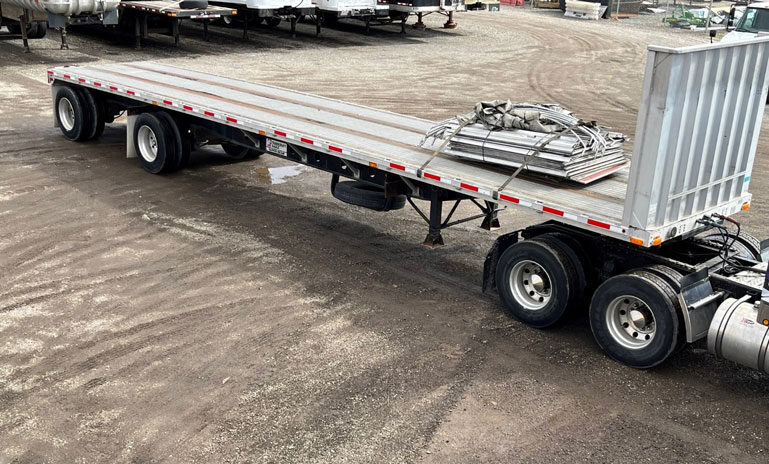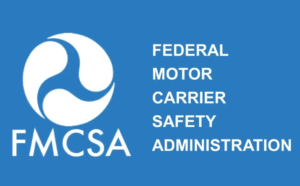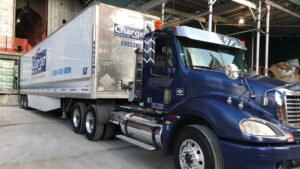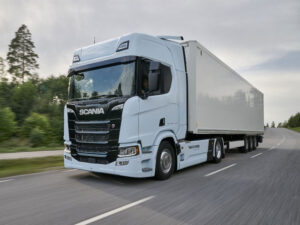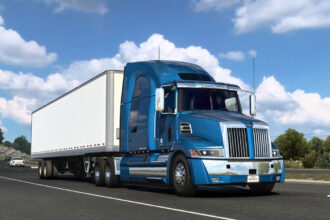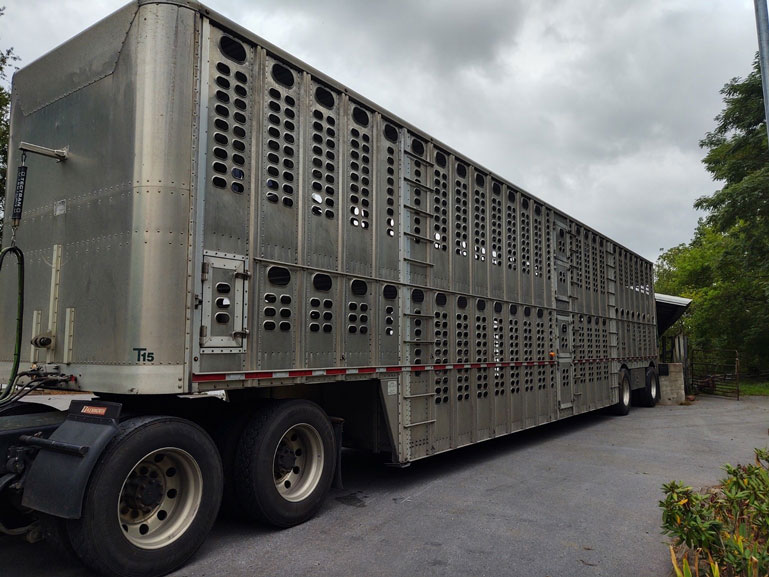Table of Contents
Introduction
A Flatbed Trailer LLC is a limited liability company that operates flatbed trailers. Flatbed trailers are trucks without sides or a roof, designed to transport large and oversized items that require open transportation. The LLC structure offers you liability protection while running this type of trucking business.
You can offer a range of services centered around the use of flatbed trailers. These encompass hauling oversized or unusually shaped cargo, transporting construction materials (such as steel, lumber, or heavy machinery), and carrying large equipment.
You can also facilitate deliveries for industries like construction, manufacturing, or logistics, and provide specialized transport for items that cannot fit into standard enclosed trailers. You may engage in leasing agreements where other businesses or individuals rent your flatbed trailers for specific durations or for recurring use.
Additionally, you could sell flatbed trailers to interested parties, such as other transport companies, construction firms, or individuals in need of such equipment for operations. Explore this article so you can understand how to set up a Flatbed Trailer LLC.
Flatbed Trailer LLC: Everything You Must Know:
- Conduct Market Research
- Create a Business Plan
- Set Up Legally
- Secure Financing
- Acquire Equipment
- Develop Marketing Strategies
- Ensure Tax Compliance
- Adapt and Grow
Recap
1. Conduct Market Research
Before you set up your Flatbed Trailer LLC, you need to conduct comprehensive market research. Start by analyzing the demand for flatbed trailer services in different sectors. Identify specific industries needing transportation of goods on open trailers without sides or a roof.
Make sure you assess the competition, understanding how many other companies offer similar services including pricing strategies. Survey potential clients to comprehend your clients’ needs better. Look into emerging trends within the transportation and logistics sector that might impact your business.
This research phase allows you to pinpoint potential gaps in the market or areas where you can differentiate your services. Moreover, scrutinize geographical areas where there’s higher demand for flatbed trailers. By grasping these market nuances, you position your LLC more strategically, increasing the likelihood of success in meeting your client needs efficiently.
2. Create a Business Plan
The next crucial step in establishing your Flatbed Trailer LLC is to create a business plan. This plan is your roadmap, guiding you through every step of your business journey. First, you define your goals and objectives; ask yourself what you want to achieve and how you plan to do it.
You must also identify your target market—you need to know who your services are for and how to reach them effectively. Financial projections play a significant role; calculate your costs, potential revenue, and how you plan to fund your operations.
Moreover, detail your marketing strategies; explain how you’ll promote your services and attract clients. Your plan should be comprehensive, covering all aspects of your business operations, from the services you offer to how you plan to grow and adapt in the market.
Always revisit and update this plan—it’s your business compass, guiding your decisions and ensuring your company’s success.
3. Set Up Legally
Setting up your Flatbed Trailer LLC legally involves several essential steps to ensure compliance and protection. First, you choose a unique and suitable name for your business, one that reflects your services, complies with your state’s naming guidelines, and is available for registration.
Then, file the necessary documents, such as articles of organization, with your state’s Secretary of State office. This document typically includes details about your Flatbed Trailer LLC, such as its name, address, registered agent, and purpose. Afterward, you need to create an operating agreement outlining the structure and rules for your LLC.
Finally, obtain any necessary business licenses or permits, and apply for an Employer Identification Number (EIN) from the IRS. Remember, the process might vary slightly depending on your state’s regulations, so it’s advisable you consult with a legal professional or use online services that streamline the registration process for you.
4. Secure Financing
You need to secure financing for your Flatbed Trailer LLC because it is crucial for starting and sustaining operations. You should evaluate various funding options available to you. Consider approaching banks or credit unions for business loans tailored to your needs.
Another avenue to explore is to seek investors who might be interested in supporting your venture in exchange for a stake in the company. You can also explore government grants or programs that cater to small businesses in the transportation sector.
It’s essential you prepare a detailed financial plan showcasing how you intend to use the funds and how you plan to repay loans or provide returns to investors. Additionally, ensure you have a good credit history and a solid business plan to present to potential lenders or investors, highlighting the profitability and sustainability of your flatbed trailer business.
Finding the right financing option will provide the necessary capital you need to launch and grow your LLC effectively.
5. Acquire Equipment
Acquire equipment for your Flatbed Trailer LLC based on the mode of operation you defined in your business plan, whether you want to lease, sell, or make deliveries with flatbed trailers to clients. If you want to rent out trailers to your clients, you need to establish relationships with suppliers or manufacturers to secure a fleet of reliable trailers.
Research various models and manufacturers to ensure the trailers meet safety and regulatory standards. Make sure you negotiate terms for maintenance and servicing to keep your fleet in optimal condition. Conversely, if you plan on selling trailers, collaborate with manufacturers to procure trailers for resale.
Ensure your inventory aligns with market demand and offers competitive pricing. Verify warranties and after-sales services to provide added value to your clients. Regardless of your choice, focus on obtaining high-quality trailers that fulfill client needs, whether through rental services or sales, ensuring a seamless and efficient transportation experience for your customers.
6. Develop Marketing Strategies
When developing marketing strategies for your Flatbed Trailer LLC, consider how you want to connect with your clients. First, identify your target audience—you need to know who you’re trying to reach.
It’s important you understand your audience needs, challenges, and preferences when it comes to transportation services using flatbed trailers. Utilize various channels to reach potential clients; this might include digital marketing through social media, a professional website, or industry-specific platforms.
You could also employ traditional methods like networking at industry events or through partnerships with businesses that might need your services. Highlight what makes your trailers stand out—whether it’s reliability, special features, or excellent customer service.
Consistency is key; ensure your marketing messages align with your brand values and resonate with your target audience. Track the effectiveness of your strategies and adapt them based on client feedback and market trends to continually improve your marketing approach.
>>>PRO TIPS: Do I Need Authority For Flatbed Trailer
7. Ensure Tax Compliance
Ensuring tax compliance for your Flatbed Trailer LLC is vital to keep your business running smoothly. You must understand the tax obligations specific to your industry. This includes obtaining an Employer Identification Number (EIN) from the IRS, essential for hiring employees and filing taxes.
Make sure you stay updated on federal and state tax laws that might affect your business operations, such as sales tax requirements or transportation-related taxes. Keep meticulous records of all your financial transactions and expenses related to your flatbed trailer business.
Deductible expenses, like maintenance costs or fuel, can impact your tax liabilities. Consider consulting a tax professional or accountant to ensure you’re meeting all tax obligations accurately and efficiently. When you comply with tax laws, you not only avoid penalties but also establish your business as trustworthy and reliable in the eyes of clients and authorities alike.
8. Adapt and Grow
It’s important you adapt and grow your Flatbed Trailer LLC for long-term success. Continuously assess market changes and customer needs; you should keep a finger on the pulse of the industry. Explore new technologies or innovations that could improve your operations or the services you offer.
You must remain flexible and open to change; this might involve adjusting your business model or expanding your service offerings based on emerging trends. Gather feedback from your clients regularly; this helps you understand what’s working well and what areas you need to improve.
Invest in ongoing training for your team to stay updated on industry standards and best practices. Always keep an eye on your financial health, ensuring sustainable growth without overextending resources.
Additionally, you must adhere to federal and state regulations regarding safety standards for your trailers and any transportation laws applicable to your business.
Recap
To set up your Flatbed Trailer LLC, you need to conduct thorough market research to understand demand. Create a detailed business plan outlining objectives, target market, and financial projections. Legally establish your LLC, manage finances separately, and acquire suitable equipment. Don’t forget to develop robust marketing strategies, ensure tax compliance, and adapt for sustained growth.


